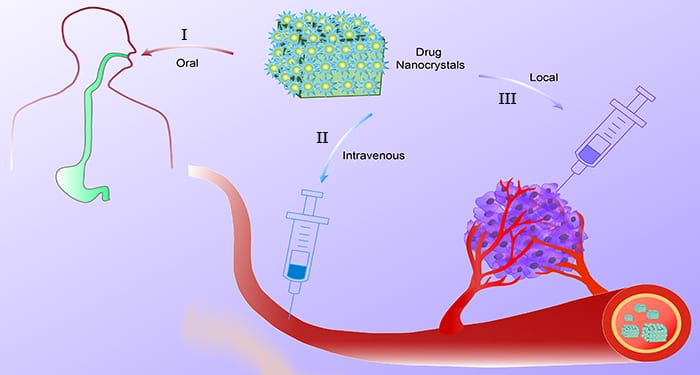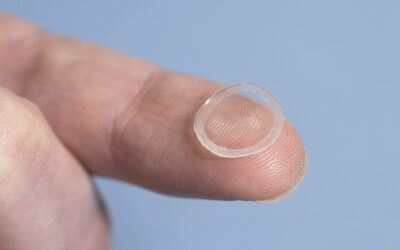Cancer remains one of the deadliest diseases and causes millions of deaths every year. Chemotherapy is currently one of the most effective ways to treat cancer; however, the hydrophobic nature of many traditional chemotherapy drugs results in two inevitable problems: the poor ability of delivery in blood circulation and the low efficacy due to aggregation of drugs, resulting in low bioavailability and severe adverse effects towards normal tissues.
Nano drug delivery systems (nDDSs) have attracted great attention recently, as they enhance accumulation/retention of therapeutic agents in the right places based on the enhanced permeability and retention (EPR) effect in tumor tissue. However, most nDDSs have a limitation of relatively low drug-loading capacity because of the limited surface area of nanocarriers. Drug nanocrystals (NCs) have more potential in this area, with fascinating properties such as high drug-loading efficiency, great structural stability, and steady dissolution for efficient delivery of hydrophobic drugs.
In a recently published review article in WIREs Nanomedicine & Nanobiotechnology, Prof. Peng Huang and co-workers from Shenzhen University summarized recent advances on drug NCs for cancer therapy, including synthesis, characterization, applications, mechanisms, and future perspectives. The antitumor effects of drug NCs were discussed by different administration routes, such as oral administration, intravenous administration, local administration, and others. Although most research on drug NCs for cancer therapy are still at the preclinical animal level, this promising drug delivery system offers an exciting method for cancer therapy with enhanced circulation time in the blood stream, cellular uptake efficiency, and prolonged retention time in tumor cells.
Kindly contributed by the Authors.
















